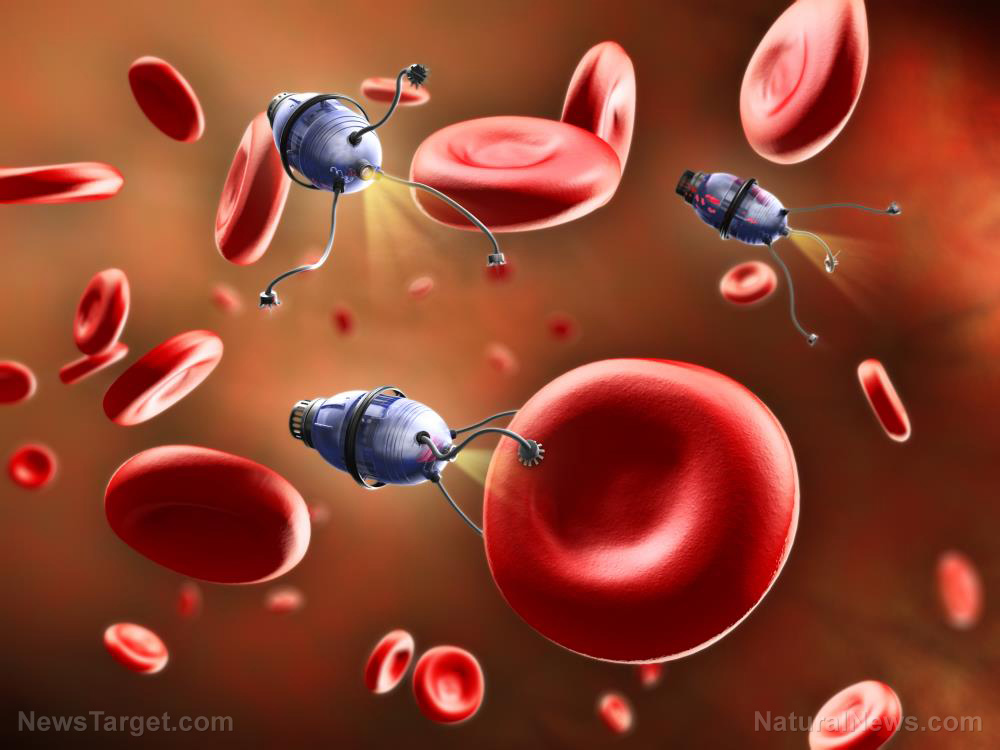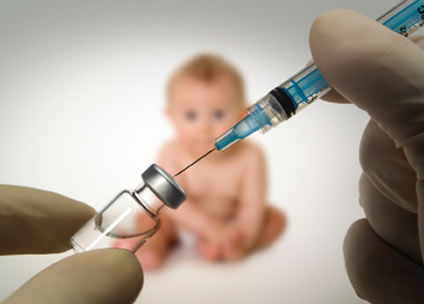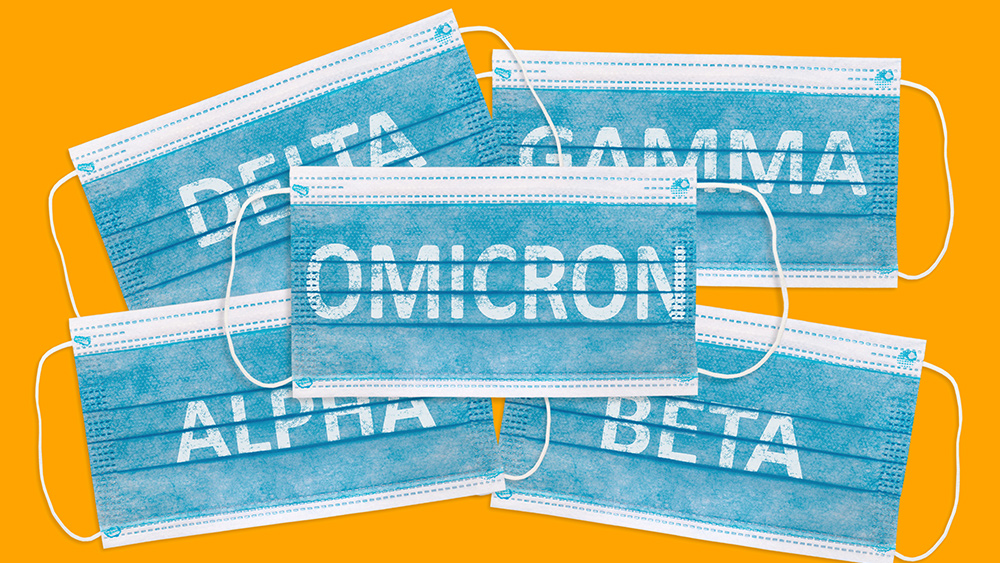Lipid nanoparticles: The hidden danger in COVID vaccines fueling hyper-inflammation and faulty immune responses
06/02/2025 / By Lance D Johnson

The COVID vaccine rollout was sold as a miracle of modern science—a life-saving intervention backed by “safe and effective” technology. But beneath the glossy PR campaign lies a darker truth: lipid nanoparticles (LNPs), the delivery system for mRNA vaccines, may be triggering catastrophic immune responses, systemic toxicity, and long-term damage. Vaccine manufacturers like Pfizer and Moderna refuse to disclose critical safety data, leaving billions of people as unwitting test subjects in a global experiment. As adverse reactions mount, one question demands an answer: Were these LNPs ever truly safe, or are they a ticking time bomb for chronic illness?
Key points:
- Lipid nanoparticles (LNPs) act as adjuvants, provoking hyper-inflammatory immune responses that can lead to severe reactions and even death.
- Moderna’s own trials revealed 100% of high-dose participants experienced adverse effects, yet regulators approved the shots without full transparency.
- LNPs contain polyethylene glycol (PEG) and cationic lipids—known toxins—yet manufacturers refuse to release safety data sheets or quantify LNP doses per vial.
- Oxidized lipids in LNPs disrupt cellular function, potentially triggering neurodegenerative and autoimmune disorders.
- Vaccine makers admit they don’t know how many LNPs are injected per dose, calling the question “irrelevant” despite mounting evidence of harm.
The silent assault on immune function
Lipid nanoparticles were marketed as a breakthrough—tiny fat bubbles protecting fragile mRNA strands until they could hijack human cells. But these LNPs are far from inert. They act like biological grenades, revving up the immune system through pathways like NF-?B, a master regulator of inflammation. A study by the World Council for Health found that even empty LNPs—without mRNA—triggered inflammatory responses comparable to known immune activators like LPS, a toxin found in bacterial infections.
Dr. Maria Gutschi, a researcher who filed FOIA requests for LNP data, was met with silence. Moderna dismissed her inquiry, claiming the number of LNPs per dose was “irrelevant.” The UK’s MHRA never responded. This lack of transparency raises alarming questions: If these particles are harmless, why the secrecy?
Toxicity hiding in plain sight
The LNPs in Pfizer and Moderna’s vaccines contain SM-102 and ALC-0315—cationic lipids notorious for their toxicity. Oxidation studies reveal these lipids degrade into reactive aldehydes, which can crosslink cell membranes, disrupt calcium channels, and impair glucose metabolism. In simpler terms: They poison cells from the inside out.
Worse, oxidized lipids bind to inflammatory receptors (TLRs, PPARs), turning the body’s defense system against itself. This could explain the surge in autoimmune conditions post-vaccination, from lupus-like syndromes to sudden-onset diabetes. As one researcher noted, “Billions of people have been injected with a poorly characterized chemical delivery system—and now we’re just starting to see the fallout.”
A legacy of long-term damage
LNPs don’t just vanish after injection. Traces of synthetic lipids linger in the bloodstream for days, potentially accumulating in organs like the liver, spleen, and brain. Animal studies show LNPs breaching the blood-brain barrier, raising the specter of neurodegenerative diseases like Alzheimer’s or Parkinson’s.
A new study has found that lipid nanoparticles (LNPs) used in Pfizer-BioNTech’s BNT162b2 mRNA COVID-19 vaccine stimulate critical pathways in immune cells, potentially aiding the vaccine’s perceived effectiveness. Researchers discovered that the LNPs not only deliver mRNA but also directly activate NF-kB signaling in innate immune cells like monocytes, a mechanism similar to certain pathogen-recognition receptors. This immune response is merely a reaction to a foreign substance, and does not establish learned immunity to the correct, targeted pathogen.
The study evaluated the immune response triggered by empty LNPs (without mRNA) in THP-1 monocyte cells. Results showed that LNPs dose-dependently activated the NF-kB pathway, comparable to low doses of TLR agonists like R848 (activating TLR7/8) and LPS (activating TLR4). However, LNPs did not activate the interferon regulatory factor (IRF) pathway, which is central to antiviral responses.
This can cause serious long term issues:
Endosomal escape compromised
While LNPs aim to exit endosomes for mRNA delivery, oxidized or modified lipids in these particles may accumulate in lysosomes. This interference could impair normal lysosomal function, potentially disrupting the body’s cellular waste management pathways.
Receptor-mediated immune and metabolic effects
Oxidized lipid components of LNPs could interact aberrantly with receptors such as PPARs, TLRs, and CD14. Such interactions might dysregulate signaling pathways involved in immune response (e.g., TLR-induced inflammation) and lipid metabolism (e.g., PPARs and CD14 pathways), contributing to metabolic disturbances or inflammatory states.
Sustained membrane vulnerabilities
Long-term exposure to lipid oxidation products—or structural modifications caused by hydrolysis and crosslinking—might gradually compromise membrane integrity. Over time, these changes could disrupt cell membrane function and communication, potentially linking to chronic conditions such as neurodegenerative disorders or autoimmune phenomena, where cellular dysfunction plays a role.
Despite these risks, regulators fast-tracked the shots without long-term safety studies. Now, as cases of myocarditis, blood clots, and mysterious deaths pile up, the medical establishment remains eerily silent.
Sources include:
WorldCouncilforHealth.substack.com
Submit a correction >>
Tagged Under:
autoimmune disease, Big Pharma, chronic illness, covid vaccines, health freedom, hyperinflammation, immune system, lipid nanoparticles, long-term damage, medical corruption, medical fraud, medical freedom, Moderna, mRNA toxicity, NF-?B, oxidative stress, PEG toxicity, Pfizer, Vaccine injuries, vaccine side effects
This article may contain statements that reflect the opinion of the author





















